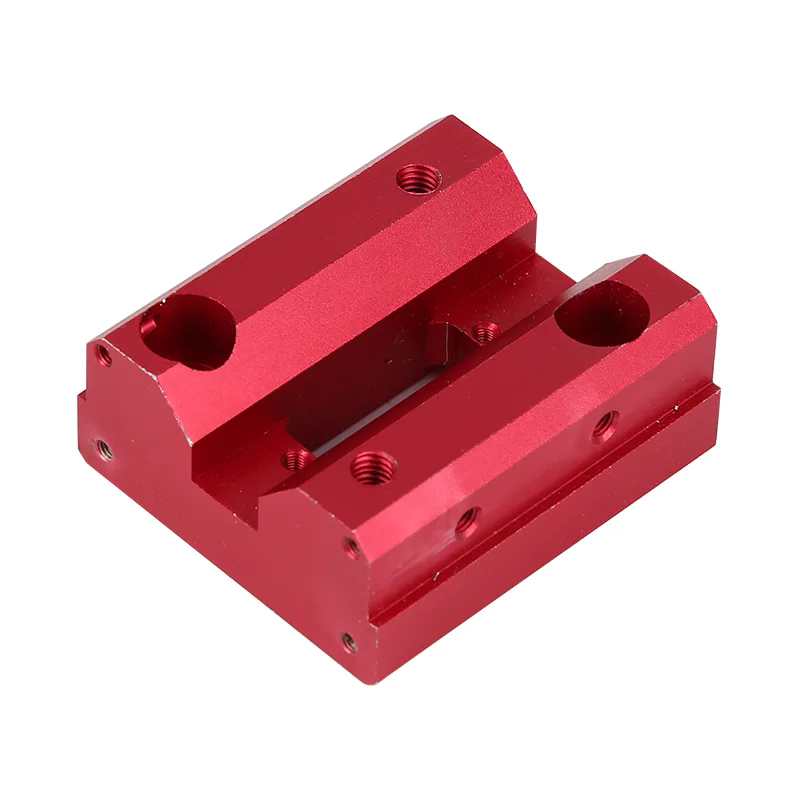How CNC Parts Machining Transforms Modern Manufacturing
2025-08-28
In today’s fast-paced manufacturing landscape, precision, efficiency, and scalability are crucial for businesses seeking to stay competitive. CNC parts machining has become one of the most critical processes powering the evolution of modern industries, offering unparalleled accuracy and productivity across diverse applications. From automotive to aerospace, electronics to medical equipment, CNC machining has revolutionized how manufacturers produce components, ensuring consistent quality at scale.
What Is CNC Parts Machining and How Does It Work?
CNC parts machining refers to the process of using Computer Numerical Control (CNC) machines to create precision parts from a wide range of materials, including metals, plastics, and composites. Unlike traditional manual machining, CNC machining is automated and controlled by programmed software, ensuring highly accurate, repeatable, and efficient production.
How the CNC Machining Process Works
-
Design and Programming
The process starts with creating a CAD (Computer-Aided Design) model of the component. The design is then converted into a CNC program using CAM (Computer-Aided Manufacturing) software. -
Machine Setup
Operators select the appropriate tools, fixtures, and materials for production. -
Automated Cutting
CNC machines interpret the programmed instructions and perform precision cutting, drilling, milling, turning, or grinding. -
Inspection and Quality Control
Finished parts are measured using advanced inspection tools to ensure accuracy within microns.
Applications of CNC Parts Machining
-
Automotive: Engine components, transmission housings, brake system parts
-
Aerospace: Turbine blades, landing gear components, structural assemblies
-
Electronics: Heat sinks, connectors, housings
-
Medical Devices: Surgical instruments, orthopedic implants, dental tools
-
Industrial Equipment: Gears, shafts, customized machine components
By leveraging CNC machining, manufacturers can achieve high precision, reduced lead times, and exceptional scalability, making it an indispensable process in today’s competitive markets.
Why CNC Parts Machining Is the Future of Manufacturing
CNC machining has rapidly gained dominance across industries due to its numerous benefits over traditional manufacturing methods. Let’s explore the main advantages that make it a preferred choice.
Advantages of CNC Parts Machining
| Feature | Benefit |
|---|---|
| Precision & Accuracy | Achieves tolerances as tight as ±0.005mm, ensuring consistent quality. |
| Material Versatility | Works with aluminum, steel, titanium, copper, plastics, and composites. |
| Scalability | From prototypes to mass production, CNC machining delivers efficiency. |
| Automation & Speed | Reduces production times by automating complex processes. |
| Cost-Effectiveness | Minimizes waste and reduces labor costs over high-volume runs. |
| Complex Geometries | Produces intricate shapes and multi-axis parts without sacrificing quality. |
Material Capabilities
CNC machining is compatible with a wide range of materials, making it ideal for custom manufacturing:
-
Metals: Aluminum, stainless steel, brass, titanium, copper, magnesium
-
Plastics: ABS, PEEK, PTFE, nylon, polycarbonate
-
Composites: Carbon fiber, fiberglass
With CNC machining, manufacturers are not restricted by material limitations, allowing them to optimize component properties based on performance, cost, and durability.
Key Product Specifications and Customization Options
CNC parts machining allows for customized solutions tailored to meet client-specific needs. At Zhongyilong, we specialize in producing high-precision CNC components based on detailed technical requirements.
Customization Services
-
Multi-axis CNC Machining – 3-axis, 4-axis, and 5-axis capabilities
-
Rapid Prototyping – Accelerated timelines for concept validation
-
High-volume Production – Optimized workflows for cost efficiency
-
Surface Treatment Solutions – Tailored finishes for appearance and performance
By offering a complete one-stop machining service, we help customers accelerate product development and reduce time-to-market without compromising on quality.
FAQs About CNC Parts Machining
Q1. How do I choose the right CNC machining service for my project?
A: Start by evaluating the supplier’s capabilities, tolerances, material expertise, and quality control measures. Check if they provide prototyping, mass production, and finishing services under one roof. At Zhongyilong, we handle everything from initial design support to final inspection, ensuring complete process transparency.
Q2. What factors affect the cost of CNC parts machining?
A: CNC machining costs depend on:
-
Material selection – Metals like titanium cost more than aluminum or plastics.
-
Complexity of design – Multi-axis machining and intricate geometries require additional programming time.
-
Production volume – Bulk orders reduce unit costs significantly.
-
Surface finishes – Advanced coatings or treatments may increase costs but improve durability.
By optimizing your design and selecting the right materials, you can balance performance, quality, and budget effectively.
CNC parts machining is redefining the way manufacturers produce components, combining automation, precision, and versatility to meet the growing demands of modern industries. Whether you need high-volume production or one-off prototypes, CNC machining delivers solutions tailored to your unique requirements.
At Zhongyilong, we specialize in high-precision CNC parts machining, providing customized services across multiple sectors. With cutting-edge equipment, strict quality control, and a customer-first approach, we help you bring your designs to life faster and more accurately.
Contact us today to discuss your project requirements and discover how Zhongyilong can support your manufacturing goals.
